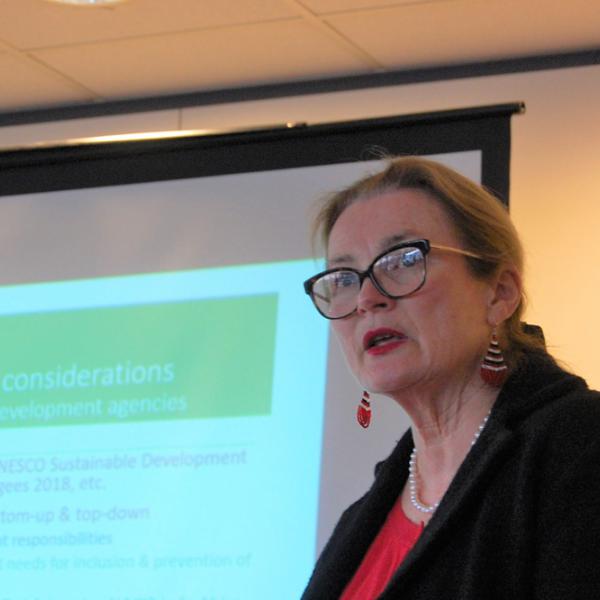Multilingual education means more than a focus on languages. It means a focus on two or more languages plus the exchange and translation of two or more systems of knowledge. It also means respect for diversity of students’ systems of belief and culture.
Preparing teachers to become comfortable with three principles – bi-/multilingualism, culturally sustaining pedagogies and knowledge exchange (transknowledging) – is not difficult. These involve common sense and practical and inexpensive solutions to complex student diversity. They also facilitate inclusion, quality education, and the wellbeing of students from receiving and migrant communities.
In her presentation, Kathleen Heugh focused on the implications for teacher education of increasing diversity with specific attention to lessons learned from longitudinal studies of different approaches to bilingual and multilingual education in Africa, Asia and Australia.
Kathleen Heugh, University of South Australia, is a language education policy research specialist who has led system-wide and multi-country evaluation studies on languages and literacy in education in sub-Saharan Africa for international governments and development agencies alike. Her theoretical and field research in multilingual education in more than 30 countries has informed UNESCO language education policy recommendations for countries in Africa and South-East Asia. She has particular expertise in the relationship between the languages of learning and school retention, particularly for marginalised, migrant and displaced communities, and also in the relationship between faith and literacies in education in urban and rural settings.
